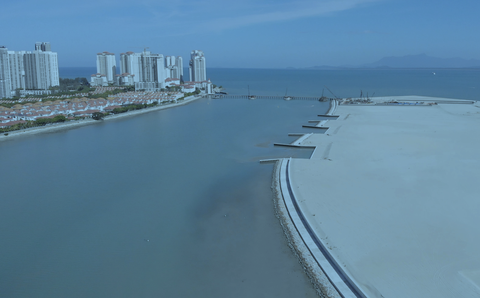13.10.2024
Dr. Michaela Büsse @"Kick-off Event: Dirt-Cheap" on Oct.17th at Hafencity Universität in Hamburg

Dr. Michaela Büsse @"Kick-off Event: Dirt-Cheap" on Oct.17th at Hafencity Universität in Hamburg
Dirt Cheap
A common thread in the analysis of the multiple crises that urban societies face at present is that of rising costs, everything seems to be more and more expensive: prices of land and housing in urban areas have been skyrocketing for almost two decades now. Most recently, costs of construction, prizes for various products, resources and raw materials, as well as costs of living have risen dramatically. These dynamics can be taken as indication that the “imperial mode of living” (Brand/Wissen 2021) which relies on unlimited appropriation of resources and constant externalization of social and ecological costs has reached its limits: the global ecological crisis, escalating economic inequalities and heightened political instability testify to this. Scholarly and increasingly also public attention is now on the mechanisms that kept this system going: Behind the rising costs and prizes, hides “cheapness” (Moore/Patel 2017). Moore and Patel define cheapness as “a set of strategies to manage relations between capitalism and the web of life by temporarily fixing capitalism’s crises” (ibid., S. 22). They state: “Cheap is a strategy, a practice, a violence that mobilizes all kinds of work—human and animal, botanical and geological—with as little compensation as possible” (ibid.).
In the current annual theme “Dirt Cheap!”, we use cheapness as a lens for understanding cities and urban processes. It helps to approach the processes that underly the circuits of production and consumption in modern cities and the kinds of work which provide the basis for this. The term dirt cheap adds another dimension to this, by pointing towards the practices of valuation and the cultural dimensions inherent in classifying something as cheap; but it also refers, quite literally, to the dirt that characterizes much of the invisible and precarious labour – locally as well as globally, whether on construction sites of new shopping malls in Hamburg or in sweat shops for the global clothing industry.
Over the upcoming year we ask ourselves: What are mechanisms of “cheapness” in contemporary cites? Which products characterized by their high prizes are actually the result of cheapness as strategy? What types of work come into view, which usually remain invisible, and which sites of production and construction? What forms of labour, sites of extraction, and ways of life are involved in those processes?
Brand, U. and M. Wissen (2021) The Imperial Mode of Living: Everyday Life and the Ecological Crisis of Capitalism. Verso, London and New York.
Patel, R. and J.W. Moore (2018) A History of the World in Seven Cheap Things. A Guide to Capitalism, Nature, and the Future of the Planet. Verso, London and New York.
